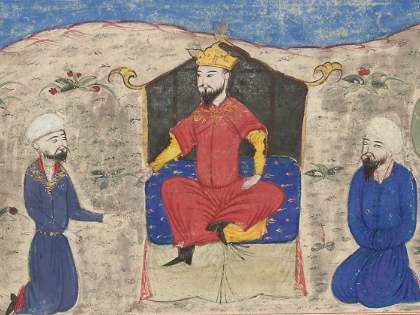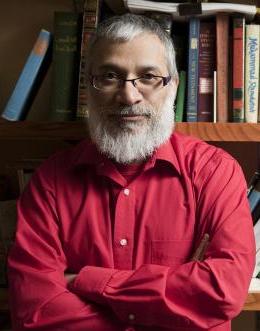HUMS 274, The Education of Princes: Medieval Advice Literature of Rulership and Counsel

Course Description
In this course we read “mirrors for princes,” a type of political writing by courtiers and advisors. The genre flourished in the courts of medieval Europe and the Islamic world. We learn about the ethical and moral considerations that guided (or were meant to guide) rulers in their conduct, in the formulation of their policies, and about theories of rule and rulership. The works we read are from several cultural, religious, and political traditions, and include: Christine de Pizan, A Medieval Woman’s Mirror of Honor; Einhard, Life of Charlemagne; Erasmus, Education of a Christian Prince; Ibn al-Muqaffa’, Kalilah and Dimnah, John of Salisbury, Policraticus: Book of the Statesman; Machiavelli, The Prince; Nizam al-Mulk, The Book of Government. All texts are in English translation.
Led by:
 |
Professor Shawkat ToorawaProfessor Toorawa’s scholarly interests include: classical and medieval Arabic literature, especially the literary and writerly culture of Abbasid Baghdad; the Qur’an, in particular hapaxes, rhyme-words, and translation; the literatures of Mauritius; modern poetry; and SF film and literature. Professor Toorawa books include the study Ibn Abi Tahir Tayfur and Arabic Writerly Culture: a ninth-century bookman in Baghdad (RoutledgeCurzon 2004), an edition and collaborative translation of Ibn al-Sa’i’s 13th-century Consorts of the Caliph: Women and the Court of Baghdad (NYU 2015), and the edited anthology The City That Never Sleeps: Poems of New York (SUNY 2015). He is preparing an edition and translation of Ibn al-Marzuban’s The Superiority of Dogs to People, a 10th-century work on friendship, and the co-edited collection Arabic Belles Lettres (Lockwood, 2019) is out this year. Toorawa is active as a Director of the School of Abbasid Studies; as an executive editor of the Library of Arabic Literature (an initiative to edit and translate the premodern Arabic literary heritage); and as host of The dr T projecT. |